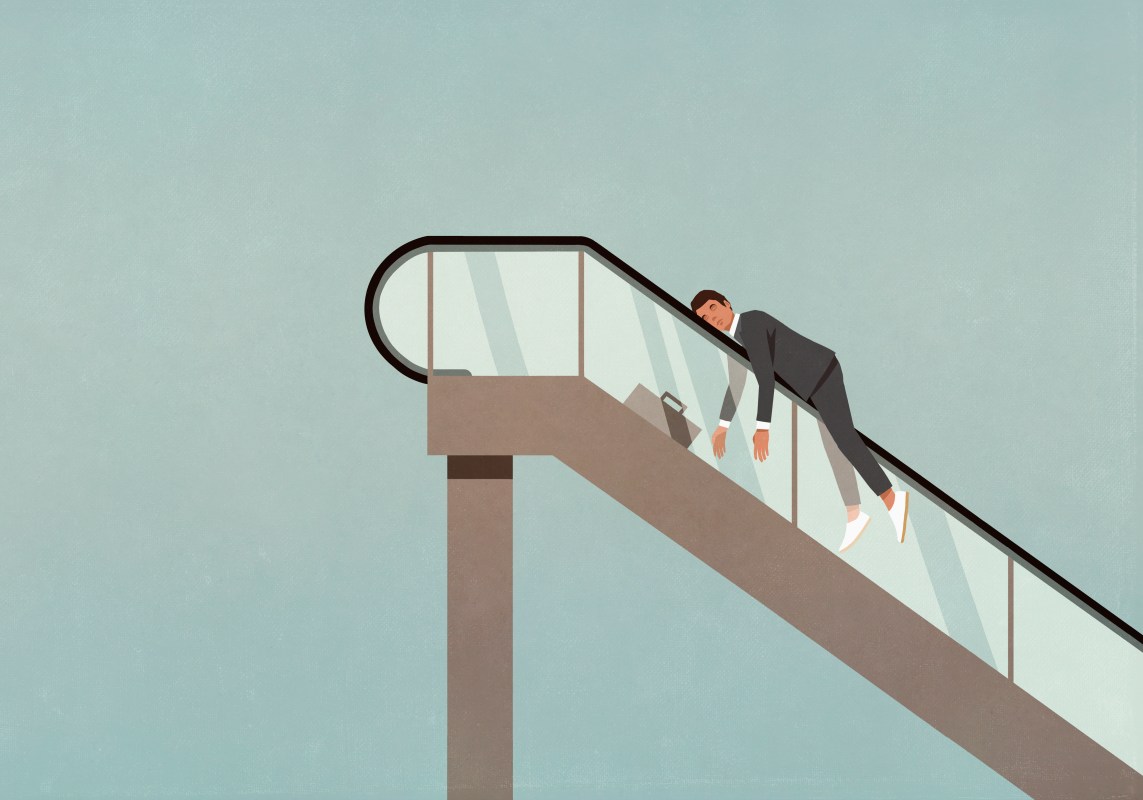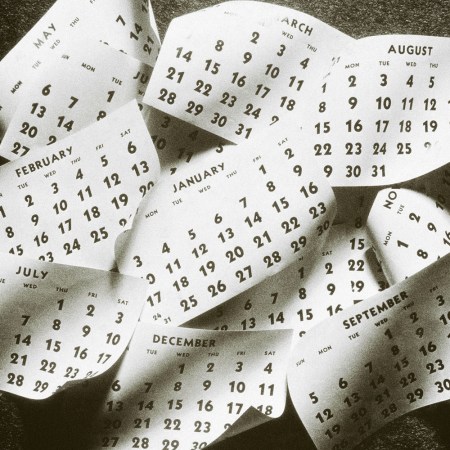According to research from Washington University, the richest Americans have actually worked less since 2019.
Not by a substantial amount — about 1.5 hours a week — but that adds up over the course of the year (78 hours, quick maths). It’s somewhat surprising, considering A) working has been wealthy/married Americans’ most cherished hobby since the 1980s and B) we’ve heard so much about how the WFH era has eroded the sanctity of the home, compelling executives and employees alike to answer emails past their bedtimes.
And yet, the C-suite is cutting back. To quote workplace critic Derek Thompson: “The fever of workism is finally breaking among the most workaholic Americans.”
It’s difficult to pinpoint exactly why high-profile workers don’t want to work so much anymore: is it because they’ve gotten used to spending more time with their kids? Or they’re spending more time at their vacation homes? Whatever the reason, the trend is a positive one, which will hopefully yield top-down changes throughout industries.
After all, workaholism is no longer an elective phenomenon reserved for the upper crust. It’s a status quo for at least a third of Americans, across all socioeconomic stations of employment (in some surveys, up to 48% of workers have dubbed themselves “workaholics”).
So, what will it take for the rest of us to make like the country’s top earners…and break our work addictions?
My Year of Stress and Agitation
Ex-analysts at America’s biggest investment firms reflect on all the sleep that never cameFirst, Some Local Context
The United States is the most overworked industrialized nation in the world. We’re one of four countries in the 38-member OCED with no maximum length for the workweek; we have no legally mandated annual leave; we’re the only country in the Americas without a national paid parental leave benefit; we work 442 more hours a year than our German peers, and 184 more hours a year than workers in Japan where the work culture is so notorious it has its own name: karoshi, which translates to “overwork death.”
With all this work has come a ton of growth (the average American worker today is 434% more productive than their 1950s counterpart), but also a never-ending cycle wherein doing less means not doing nearly enough. The toll on mental health has been enormous: the workforce is tired and unable to turn off. Burnout is no longer a buzzword. It’s a household term.
Work ≠ Relief
The struggle with workaholism, as Arthur C. Brooks recently outlined in The Atlantic, is that the root of one’s issues can also offer false relief. As demands and depression mount, some find it easier to lose themselves in the work behind it all; where, after else, should they go? They have stuff to do. They might as well lean into it, even convince themselves they love it. But that only compounds the issue.
While the majority of the workforce doesn’t have the luxury of deciding to work less, the way wealthy Americans have evidently opted to rollback their availability these past few years, it’s important to periodically assess your relationship to work. What’s the first thing you do when you wake up? Are your work hours bleeding into your evenings? Can you take the weekend off, or just a day off, without checking Slack or Teams? Is your self-worth contingent on your workweek performance?
There’s room on the spectrum between workaholism and quiet quitting, trust us. You might not like what you discover, once you interrogate some of these ideas, but that doesn’t mean you should quiet quit, or quit quit, right away. Look for ways to prioritize and optimize your life around your workplace responsibilities, so you can spend less time doing (and fretting) about them in the long-term.
Find Your Non-Negotiables!
Brooks has a fantastic line in his essay: “I treat my walks, prayer time, and gym sessions as if they were meetings with the president.” Exactly. Find your non-negotiables, whether that’s exercise, religion, time with family, whatever, and then make time for them. Every single day. Think: Oval Office > Whatever’s going on at your office. Get up earlier to take advantage of a three- or four-hour “no meeting” window. Go for a long walk in the middle of the day. Tell people to fuck off when you’re making dinner for your family. (Not really, but…kind of.)
Ritual-making isn’t easy, especially when it seems like the rituals are at odds with your paycheck, but they’ll pay dividends for your physical and mental health in the long run. And ultimately, your health should mean more to you than your productivity, despite the fact that in modern America we’re almost always programmed for the latter.
The Charge will help you move better, think clearer and stay in the game longer. Subscribe to our wellness newsletter today.




















